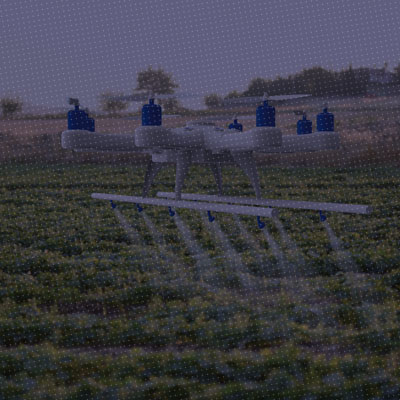The agricultural sector has seen significant developments in the past few years: government reforms, major solutions offered by the onset of technology, post-COVID changes in consumer preferences, legal changes warranted by the new Farm Acts. But have these developments made the sector a more fruitful option for the investor?
The agritech ecosystem in India is witnessing unprecedented adoption of technology across all key areas in order to offer solutions to historical problems in the agri sector and to assist the farmers in achieving higher production levels and better price realisation, as well as providing enhanced value to the end consumers.
Start-ups offering farmer platforms, precision farming solutions, quality management and traceability, financial services, bio-technological innovations and full-stack solutions have seen increased investor interest.
The dynamics of Indian agriculture is going through a transformation. While the first green revolution in India used chemicals, the agritech sector is enabling a new green revolution on the backbone of advanced technology.
Over the last two decades, the digital revolution, e-commerce and B2B (business to business) technology has been focused on the growing Indian middle class and urban markets. This was a period of tremendous growth for digital start-ups as there was an increase in technology adoption in urban India coupled with rising wealth levels among people. Every year, more people rose out of poverty and the Indian middle class kept growing. More people moved from rural India to urban India that led to growth of various sectors over the years. On the other hand, the agri sector remained relatively static,[ Jitendra, “Economic Survey 2019-20: Agriculture growth stagnant in last 6 years,” DownToEarth, January 31, 2020, https://www.downtoearth.org.in/news/agriculture/economic-survey-2019-20-agriculture-growth-stagnantin-last-6-years-69076#:~:text=The%20average%20annual%20growth%20rate,31%2C%202020%2C%20has%20 said.&text=The%20estimated%20growth%20rate%20in%202019%2D20%20is%202.9%20per%20cent.] both from growth and revenue perspective. More people moved from rural India to urban India that led to growth of various sectors over the years.
Yet, the agri sector continues to employ the highest percentage of people and rural India still constitutes over 41.49% of the total population.[ “Employment in agriculture (% of total employment),” International Labour Organization, ILOSTAT, accessed February 6, 2021, https://data.worldbank.org/indicator/SL.AGR.EMPL.ZS.] As mobile penetration increased over the last decade, making use of data and voice cheaper and younger rural population growing up as a tech-savvy generation, the agri sector is poised to see a significant evolution. The impact of this change, though small at the moment, is perceptible.
India today boasts of over 500 agritech start-ups.[ Ankit Arora, “Indian Agritech Landscape Ripe For VC Investing,” Inc42, August 22, 2020, https://inc42.com/resources/ indian-agritech-landscape-ripe-for-venture-capital-investing/#:~:text=India%20is%20home%20to%20more%20than%20 500%20Agritech%20startups%2C%20growing,in%20the%20sector%20in%202018.] India’s agriculture technology sector (agritech sector) has the potential to grow manifold to US$ 24.1bn in the next five years.[ Aseem Madan et al., Agritech - towards transforming Indian agriculture (Ernst & Young LLP, 2020), 27, https://assets.ey.com/content/dam/ey-sites/ey-com/en_in/topics/start-ups/2020/09/ey-agritech-towards-transforming-indianagriculture. pdf?download.] With a turnover of US$ 204 million[ Madan, Agritech, 14.] (mn) (under 1% of its market potential), India’s agritech sector is just getting out of the starting block.
The impact of agritech can be seen in every aspect and stage of the agri-business: right from procuring farm inputs, to improving farming/cultivation and harvesting techniques, to distribution and transportation of produce to post-production processing and handling and finally to retailing and financing - every touch-point of the agri-business has a potential for innovation.
In our conversations with venture capitals, agritech start-ups, seed companies, food companies, scientific institutions, seven key themes in agritech were dominant. These were:
- precision farming;
- farmer platforms;
- credit and financing;
- agri-biotech;
- food processing;
- quality and traceability; and
- agri infrastructure - storage and logistics.





